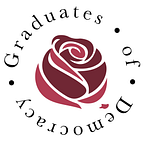Quod Abundat Definitely Vitiat: How Our Society Got High on News
As a teacher, I often see my pupils firmly claiming that their sources are Google or Wikipedia. My reply to that is to try and explain why Google is not a valuable source and why Wikipedia is not a reliable one. Nevertheless, the Swedish curriculum which was released in 2011 includes a clear focus on source criticism. Youngsters and children need tools to understand and comprehend all the news coming their way. That said they have an advantage in comparison to adults because they are used to it whereas older generations were not and for some, are still not.
It is easier than ever for people to express, spread and share their views through different channels now. Some people may consider it a positive thing thus encouraging more people to speak their mind which will make them feel like they are part of the political spectrum. But where does the line go for what is appropriate to say? And even more importantly can we rely on the fact that all these people are telling actual facts? I would make the point that it is rather naive to believe that they will.
Our modern society is rapidly changing and that, in various ways, and these changes result in both positive and less positive consequences — on that, most of us can agree. One of these less positive things is an ongoing and constant flow of information. One might consider this to be for the better, that it will allow more of us to access intelligence about ongoing issues around the globe. After all, and from a democratic perspective, a system whereas the vast majority of us knows about what is going on must be beneficial to the community as a whole.
My claim is that this assumption is to some extents a fabrication of the truth. It is a naive way of looking at it. In an attempt to not try to look all too cynical on us — which is getting harder by the day in these worrying times — the fact that millions of us can in the blink of an eye see whatever information we like whether it is an actual fact or not is a scary thought. It is naive to believe that millions of people, all individuals with different backgrounds, experiences and education level can read news and draw conclusions from it, will automatically do so in the best way.
Can we really say that all these people are able to tell fact from fiction and filter the untrue from the true? How many of those “news” are including racism, bigotry, xenophobia, islamophobia or anti-Semitism, thus making the case of the rise of Donald Trump, Brexit or the rise of the Swedish Democratic party in Sweden? It would be unfair to say that the way media are portraying issues is the only reason explaining those events, but it played a vital part in making the current political crisis possible.
Endless stories circling around on social media, such as “old Greta, 87 in Sweden only gets 4 meatballs at her retirement home whereas the refugee kid from Syria gets to stay at a fancy hotel in Stockholm” are not informing people, but rather fuelling their already existing feelings. Maybe the most concrete example of them all is the fact that after the Brexit was voted, British people most searched phrase was what is the EU or as the headline of the Washington Post reads “The British are frantically Googling what the E.U. is, hours after voting to leave it”. This after endless campaigns led by fearmongering newspapers from the conservative side.
Now is this a sign that our education system has failed or is due to a rapidly changing society which has gone so fast that we can’t cope with it or bad parenting skills even? The truth is perhaps that it is a bit of all these factors. Getting news from so many sources on a daily basis is challenging. What should you read? What should you believe in and not believe in? When teaching in school we sometimes work with these things in a simple fashion. You have to ask four questions regarding the news you are receiving and reading. Who? Why? When? & How? It sounds simple but ask yourselves how many of us have that approach to news whether it is an article from the BBC or from the Sun?
My firm belief is that it is vital that we educate our pupils in school about how to deal with a constant stream of information reaching us on a regular basis. We as adults must be very careful and think about what we are reading, what we do with the information, how we interpret it and what we use it for. We are all different individuals with different experiences and beliefs but we must all understand and learn to filtrate what is fact and what is fiction regardless of who we are and what we believe in.
Jonathan Brash is a youth politician and a teacher student from Sweden. Being a member of the Graduates of Democracy, he recently joined the Weekly Article Team.
